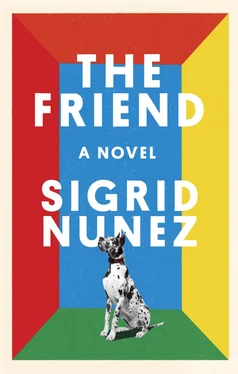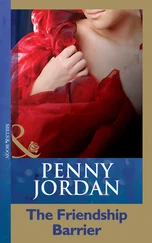Music has charms to soothe a savage breast is what the playwright William Congreve actually wrote. But it’s part of our mythology: a wild or angry animal calmed or tamed by music. Which makes sense, given all we know about how music can affect the spirits of a human being.
In White God , right before a dog is put to death, it is placed in a room with a TV showing the old Tom and Jerry cartoon The Cat Concerto , in which Tom plays Liszt’s Hungarian Rhapsody No. 2.
I don’t know if playing music really can soothe a dog’s breast, but on the internet I find it among suggestions for dealing with canine depression.
(Are you writing a book? Are you depressed? Are you looking for a pet? Is your pet depressed?)
But what kind of music?
I once had a rabbit that I let run loose in the house. In the living room was a stereo whose two large speakers sat on the floor. Whenever music was put on, the rabbit would make his way to a speaker and plant himself there. Usually he’d just lie still, listening, or maybe he’d start to groom his ears. But if I played Bach’s “Sheep May Safely Graze,” he would get up and cavort around the room.
What kind of music? Cheerful? Mellow? Fast, or slow? The Hungarian Rhapsody No. 2? How about some Schubert? (Oh, maybe not Schubert, whose pen, in the words of Arvo Pärt, was fifty percent ink, fifty percent tears.) How about Miles Davis’s Bitches Brew ? (I know this is all moronically anthropomorphic, but sometimes that is the form love takes.)
I play him Miles Davis. I play him Bach and Arvo Pärt. I play him Prince, Adele, and Frank Sinatra. And Mozart, lots of Mozart.
None of which appears to affect him at all. I don’t think he’s listening. If he is, I don’t think he cares.
Then I remember reading about an experiment in which a group of monkeys that were given a choice between listening to Mozart and listening to rock and roll chose Mozart, but when given a choice between Mozart and silence chose silence.
• • •
White God was inspired partly by the novel Disgrace . After losing his teaching position, David Lurie abandons his life in Cape Town. He retreats to a village on the Eastern Cape where his daughter Lucy has a small subsistance farm, and where he will end up working at an animal shelter. On the fate of the multitude of unwanted dogs, Lucy reflects: They do us the honor of treating us like gods, and we respond by treating them like things.
• • •
A letter from my building’s management office saying that it has been brought to their attention that I am in violation of my lease. The dog must be removed from the premises immediately, or—
• • •
Does something bad happen to the dog?
The problem with this story, a student I’ll call Carter says about a story by a student I’ll call Jane, is that the protagonist isn’t like a character in a story. She’s more like a person in real life.
Twice, he says it, because my mind has wandered, and I have to ask him to repeat himself.
You’re saying the character is too real? I ask, though I know this is what Carter is saying.
The character in question is a girl with red hair and green eyes who bonds with a girl with blond hair and blue eyes only to discover that the guy the blonde has just dumped is the same person as the redhead’s new boyfriend. The color of the boyfriend’s eyes and hair are not specified, but he is described as tall. Later, another student, whom I’ll call Viv, will say she wants to know if the girlfriend is also tall. Why is that important? I ask, masking my exasperation (as much cannot be said for Viv, who hates being asked to explain anything and replies testily, Can’t I just ask?).
There are things I’d like to know too. For example, why, when these two girls want to talk, do they keep getting into their cars and driving to each other’s houses? Why do they never use their phones, not even to text to find out first if the other one is home? Why do they not know things about each other that they could easily have learned from Facebook?
It is one of the great bafflements of student fiction. I have read that college students can spend up to ten hours a day on social media. But for the people they write about—also mostly college students—the internet barely exists.
Cell phones do not belong in fiction , an editor once scolded in the margin of one of my manuscripts, and ever since—more than two decades now—I have wondered at the disconnect between tech-filled life and techless story.
If anyone could shed light on the matter, I once thought, it would be the students. But they have not been much help. The most interesting response came from a grad student who happened to be the mother of a five-year-old. Whenever she reads him a story, she said, her son keeps interrupting: When do they go to the bathroom? Mommy, when do they go to the bathroom?
There are things we do all the time in real life that we don’t put in our stories: point taken. But no one spends ten hours a day going to the bathroom.
Think of Kurt Vonnegut’s complaint that novels that leave out technology misrepresent life as badly as Victorians misrepresented life by leaving out sex.
But that is another mystery. Nothing in their heads and nothing between their legs is how one teacher I know describes the characters in workshop stories. This teacher is someone who’s been at it much longer than I have and is about to retire. He tells me it wasn’t always so.
I remember when there was plenty of sex, he says, a lot of it pretty kinky. Now everyone’s afraid of offending someone, triggering something. We should be grateful, though. Nowadays you could get in trouble for discussing sex in class.
I know another man, a teacher at an all-women’s college, who got in trouble for including Your First Sexual Experience on a list of suggested writing prompts, prompting some women to file a complaint. According to the dean, what the teacher had done could be—well, had been—considered a form of sexual harassment.
I have taken my school’s required online course, Sexual Misconduct Training, and had my eyes opened to the fact that any oral or written reference to sexual behavior including suggestive jokes or cartoons, or casual conversation about one’s own or any other person’s sex life, comes under the heading Sexual Misconduct. There did not seem to be any exception for a writing workshop. I worried about having assigned a story that included a scene of autoerotic asphyxiation, but it went right over my students’ heads. I enlightened them, then worried that perhaps I should not have done that.
Though I confess I only skimmed most of the course material, I was surprised when I came to the final Test Your Knowledge part (“No one will see the results except the test taker”), and got two of the ten questions wrong. It was suggested that I go back and read the relevant sections again, more carefully. But why bother, since I now knew that, yes, I was required to report immediately any knowledge I might have of a teacher dating a student, and that although not required I was strongly advised to report a colleague for telling an off-color joke, even if the joke didn’t personally offend me.
What I’m saying, says Carter, is that I know this girl. I can tell you exactly what she looks like.
How’s that? The only thing I could tell you about what this girl looks like is what Jane has stated: color of eyes, color of hair—the usual student way of describing a character, as if a story is a piece of ID like a driver’s license. So common is this that I’ve come to think the students must feel that saying too much about a character is rude, an invasion of privacy, and that it’s best to be as discreet—that is, nondescript—as possible. A student writing about Carter, for example, would put in that his eyes are brown but leave out the tattoo of barbed wire circling his neck, or the way he keeps rubbing the wrist that is sore from hours of making espresso drinks at the campus Starbucks. They would mention his curly brown hair but not that it is almost always, no matter how warm the day, covered by a black watch cap. They would probably even leave out the silver-dollar-sized ear gauges, which I can never look at without wincing.
Читать дальше












